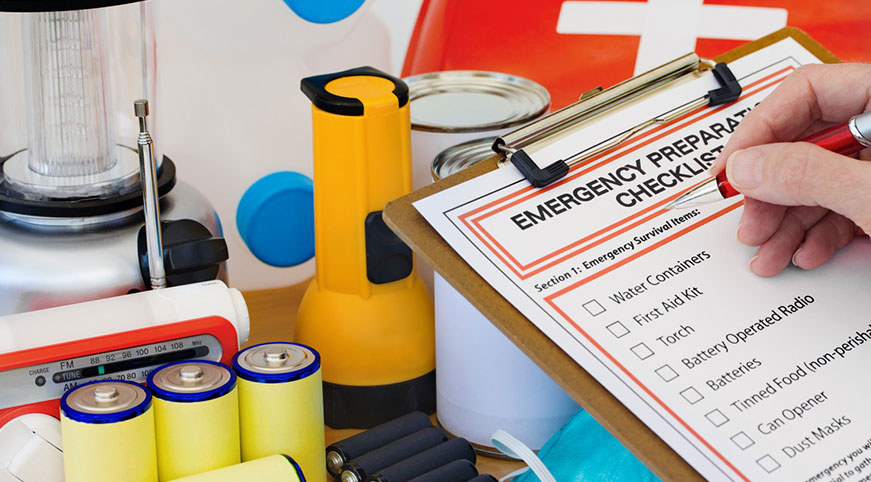September is National Preparedness Month. This annual recognition is aimed at raising awareness about the importance of preparing for disasters and emergencies that could happen at a moment’s notice. Dr. Thomas Horowitz, Family Medicine Specialist, shares his tips on how to stay prepared.
Step 1: Review your plan
Arrange how you will communicate with family, should cellular service be unavailable, and arrange a meeting spot. Have a few different locations for extra preparedness.
Step 2: Evaluate all possible events
Are you in an area prone to flooding, wildfires, or earthquakes? You may need to plan to have items such as sandbags, hoses, or an outdoor location that is clear from potential falling debris.
Step 3: Equip Yourself
- Stock ample home supplies: In case you are unable to leave your home, it’s essential to have an adequate supply of shelf-stable foods and water.
- Emergency “Go Bags”: Consider emergency “go bags” at key locations, like our car, office or any place where supplies and safety gear can be easily stored. Walking shoes, additional clothing, food, water, and first aid supplies are highly recommended. Flashlight Batteries: Be mindful not to leave batteries in the flashlight, as they may leak and damage the light.
- Cash On Hand: Keep some cash readily available.
- First Aid Kit: It is advisable to have more than just the typical ‘ouch’ type first aid kit; consider including a ‘stop the bleed’ unit as well. Additionally, consider first aid training, or even better, Community Emergency Response Team (CERT) training.
This month, review your plan, restock as necessary, and supplement what you can.
My go bag contains 2 packs of MREs (Meals Ready to Eat) – more is better – snack items, some stable comfort food such as canned fish or meat of choice, 2 quarts of water, a trauma kit, a multi-tool, sanitizer, work and medical gloves, N95 masks, a whistle, flashlight with spare batteries, duct tape, light sticks, spare socks, a battery pack for charging devices, mylar blanket, and spare glasses. I also keep a hard hat nearby.
Be sure to also consider a few everyday carry items (EDC): a good led pen light, nitrile gloves, and a scout or Swiss army-type knife.
Prepare yourself this month, so you and your family are ready at a moment’s notice.
Go to our Blog
 ENGLISH
ENGLISH KOREAN
KOREAN Spanish
Spanish RUSSIAN
RUSSIAN Armenian
Armenian FILIPINO
FILIPINO Chinese (Simplified)
Chinese (Simplified) Chinese (Traditional)
Chinese (Traditional)

최신댓글